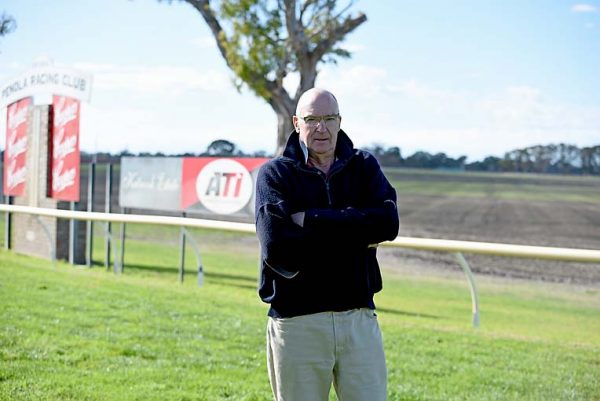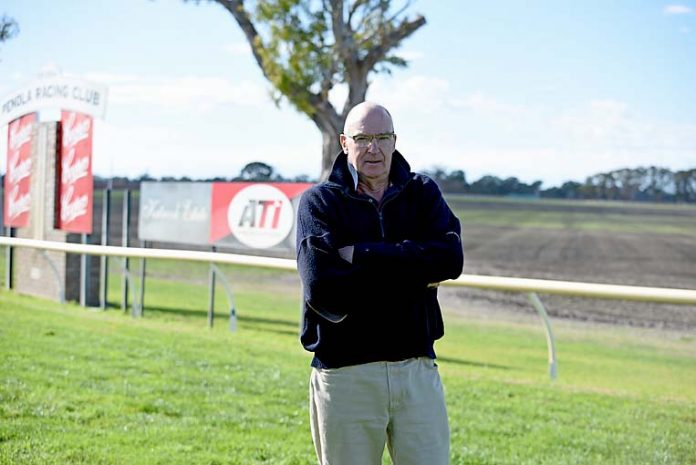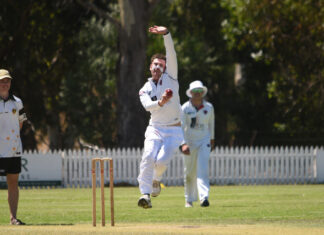
PENOLA Racing Club is ‘stuck in the dark ages’ when it comes to irrigation after plans for a state-of-the-art system fell through recently.
Last year, Thoroughbred Racing SA (TRSA) announced a $2.25m cut in infrastructure for its 25 clubs due to the impact of the Point of Consumption (POC) tax.
This cut included irrigation projects for Penola and Naracoorte racecourses, resulting in continued manual watering of the track.
Club president Mark Edwards said the loss of funding has been detrimental to the club.
As the club is ran mainly by volunteers, the manual watering task has become too great with staff hired to remedy the situation at a cost to the club.
“We have been doing it manually forever and were over the moon we did not have to do it manually anymore,” told The Penola Pennant.
“It was going to be pretty autonomous so we’d just have to set it to our specifications and off it would go.
“TRSA has basically said we will not be getting the new system until the issue is resolved, so we’re just kind of waiting to see how the State Budget goes.
“We can survive without it and the track is beautiful and green, but it would take a lot of pressure off if we were up to the same standard as other clubs.”
Introduced in 2017, the POC tax was designed to generate revenue from online gambling, with the tax payable in the state where the bet was placed.
South Australia’s 15pc rate is among the equal highest in Australia, but Member for Mount Gambier Troy Bell said unlike other states, the revenue is not being reinvested back into the industry.
In a speech to State Parliament recently, Mr Bell outlined the implications on the state’s racing industry.
“The POC tax means there is now far less incentive for bookmakers to promote South Australian races and less money bet on events means less revenue and less prize money for those races,” he said.
“In racing, prize money pays wages and so less prize money means job cuts.
“The fact leading trainers are packing up and moving operations interstate should be a real wake-up call to the State Government.”
With smaller prize pools comes less starters in general race meetings according to Mr Edwards, with trainers choosing to run their horses interstate.
“Over the weekend we had a general race meeting, but there were also two in Victoria,” he said.
“The average turn around for a horse is roughly a week to 10 days, so you would not see a horse race in Victoria one day and SA the next.
“This means that we’re fielding around 60 starters in comparison to an average of 100 in Victoria.
“It’s tough, but trainers are not going to go where they’re not going to get the good prize money.
“I want to assure everyone that our club is not in doubt, but this kind of pressure is making everything much more difficult.”
Mr Bell said the current State Government might not have introduced the tax but they can be “part of the solution”.
“If the Marshall State Government lowered the tax rate to 10pc, the same as New South Wales and Victoria, it would bring South Australia on a level playing field,” he said.
“However, they can also go further and redirect a percentage of this tax back into the industry.
“In Western Australia, 30pc of their POC tax is invested back into the industry, in Victoria, nearly 19pc goes back in.
“This is money generated by the racing industry, it deserves to be invested back into the racing industry.
“Racing is an industry which supports the full-time employment of more than 3600 people and generates $400m every year in economic benefits for South Australia.”








